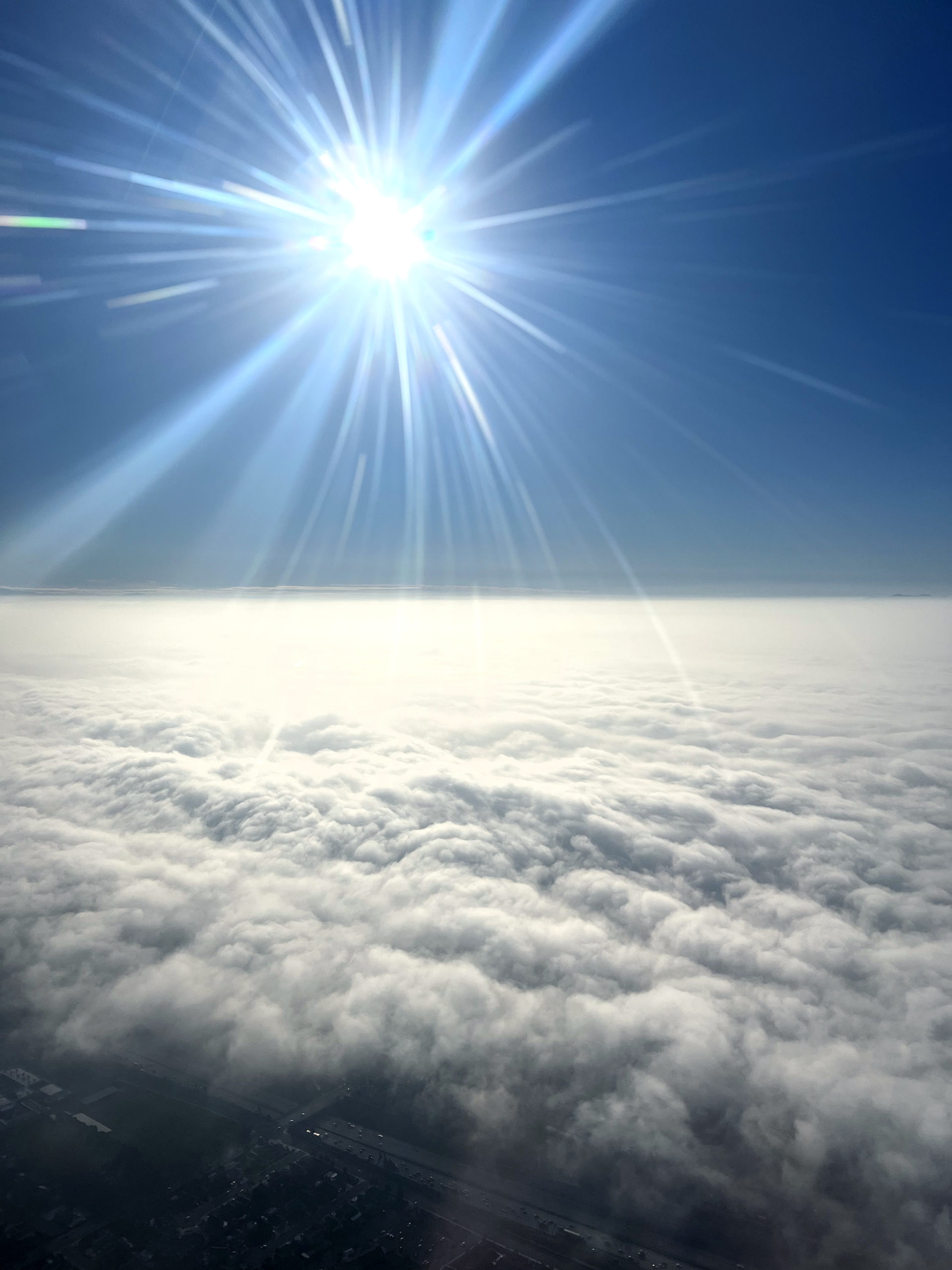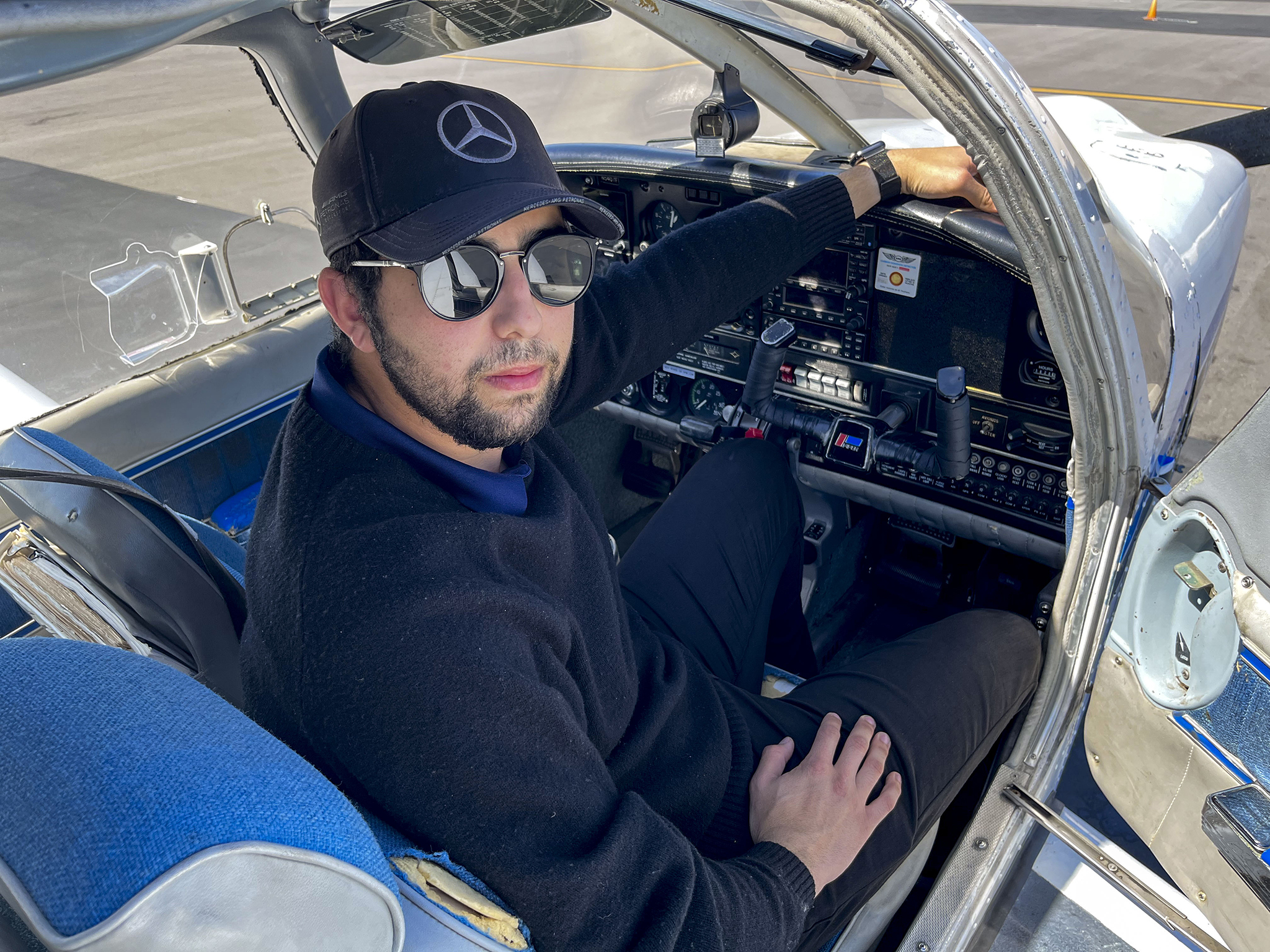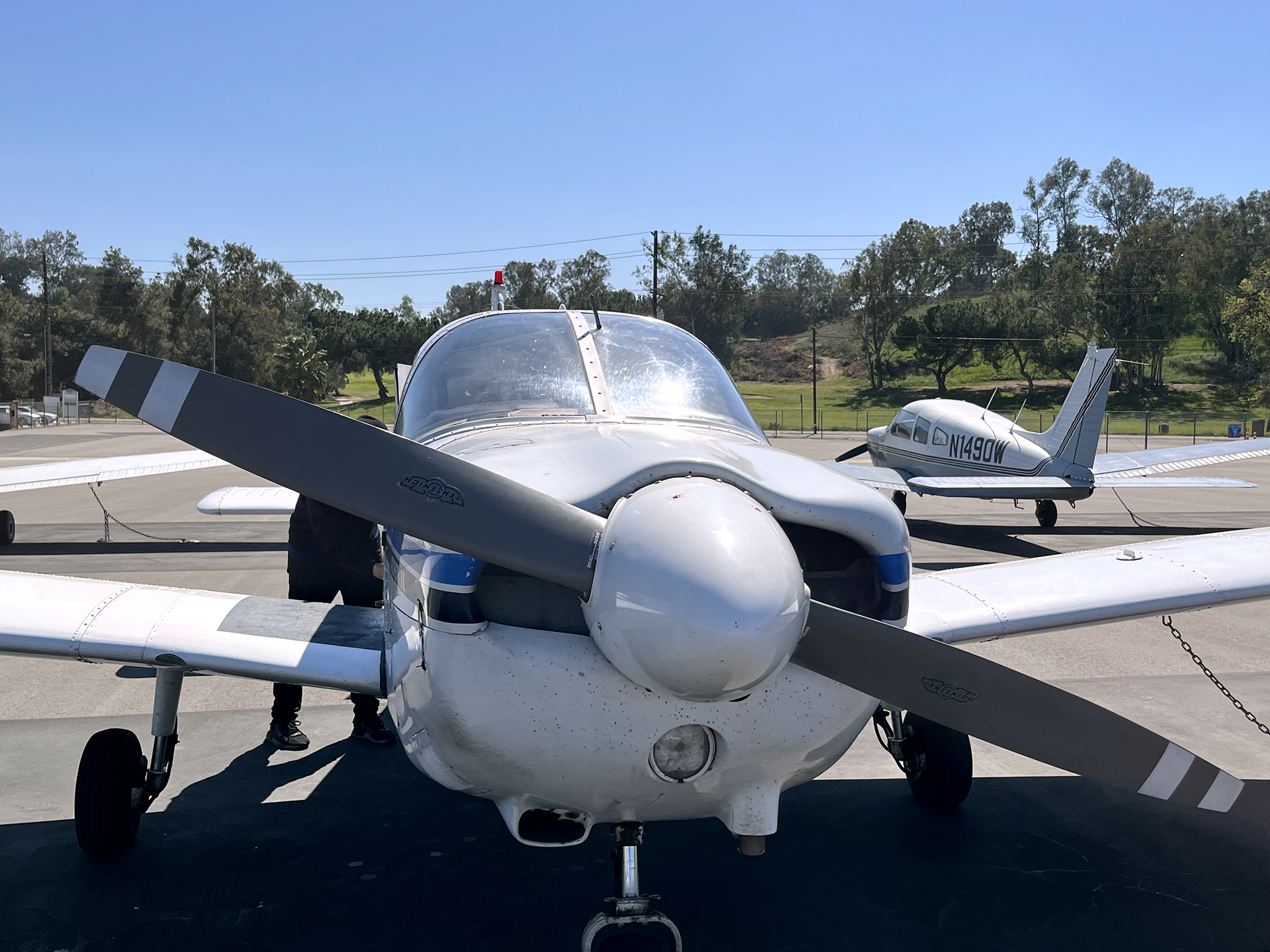
The impact of climate change
We are finding, coaching and training public media’s next generation. This #nprnextgenradio project is created in southern California, where five talented reporters are participating in a week-long state-of-the-art training program.
In this project we are highlighting the experiences of people whose lives are being affected by climate change.
Mitzi Vazquez speaks with Omar Abdelkarim, a 22-year-old commercial pilot and flight instructor from Corona, California. At the start of his career he didn’t think about climate change but after experiencing dangerous weather patterns, he is concerned about its long-term effects.
Illustration by Emily Whang
It is time to address aviation and climate change
Every time Omar Abdelkarim cruises through the clouds from city to city, he’s reminded of his favorite part of flying, freedom. He loves being able to shut off the rest of the world and focus on one task — safely getting from point A to B. That is becoming more challenging with changes in the sky.
Extreme heat caused by climate change makes it harder for him to take off, and as higher temperatures become common year-round, Abdelkarim is concerned about the long-term effects. Two years ago, a heatwave broke temperature records in Southern California indicating a long-term trend of more intense and longer heat waves in the region. According to the NASA Earth Observatory, Los Angeles County recorded its highest temperature ever at 121°F (49°C) at Woodland Hills and several other cities, like Paso Robles and Palmdale, also hit record highs.
Pilot Speaks on Climate Change

The view from Omar Abdelkarim’s flight over Rancho Cucamonga on February 12, 2022. Credit: Courtesy, Omar Abdelkarim
“When I was going through my pilot training I wasn’t really thinking about climate change,” Abdelkarim says. “As I’ve turned [flying] into a career, [climate change has] definitely been on the back of my mind more.”
Abdelkarim began his pilot training at 17 years old. Five years later, Abdelkarim is a commercial pilot and flight instructor in Los Angeles, Calif.
Abdelkarim grew up in the United Arab Emirates and lived in a housing complex that was under the approach corridor of an airport. “I’d see airliners fly in and out every day,” he says. At 9 years old, Abdelkarim was flying his own red toy airplane through the air with his left hand, mimicking airplane noises, and rocking it side to side. “Three of my neighbors were airline pilots, so I would see them step out in uniform and it inspired me,” Abdelkarim says.

Omar Abdelkarim sits down in the co-pilot seat of his airplane parked in his flight school. Mar. 14, 2022. Credit: Mitzi Vazquez
Now that he is moving up in his career and working for a major U.S. airline, Abdelkarim is witnessing daily changes in weather patterns.
“The average global temperature is rising and with an increase in temperature, aircraft performance goes down,” Abdelkarim says. He is referring to what is called, having a high-density altitude. When the air is hotter it becomes less dense, meaning there are fewer air molecules. This is important because as the airplane flies through the air, it is generating lift through the wings, but there are fewer air molecules to work with. The airplane doesn’t climb as well nor does it go as fast. Abdelkarim says, “There’s a direct link between climate change, increase in temperature, and a reduction in aircraft performance in terms of lift and thrust.”
On cold days Abdelkarim notices the impact of climate change the most. A plane can take off at 1000 to 1200 feet per minute on a cold day, whereas on a hot day the plane can only climb at 600 feet per minute. Coming into land also becomes a problem with higher density altitude because more runway is being used. This can become a safety issue.
Not only do spikes in temperature decrease plane performance severely, but flights also get canceled. Abdelkarim says this directly impacts pilots’ ability to train and work.
“I think the direction governments, engineering companies, and aircraft companies are taking are obviously just to keep airplanes flying in the most efficient, cost-efficient, fuel-efficient way possible,” he says.
Still, Abdelkarim remains hopeful.
“Climate change is a real threat and we have to push [for] more eco-friendly ways of [flying] because what’s flying all these airplanes if the Earth heats up to a point where you can’t even live there, right?” says Abdelkarim. “It’s everybody’s future so we can’t ignore that threat and just keep doing things the way we do them now.”

A 1977 PA-28-181 Piper Archer plane that Omar Abdelkarim uses to train. Mar. 14, 2022. Credit: Mitzi Vazquez
The freedom that a pilot feels while flying is unimaginable, but the feeling of experiencing weather patterns due to climate change is unforgettable.#NPRNextGenRadio pic.twitter.com/dfF9hl8mL9
— Msv (@mitzivazquez0) March 18, 2022
